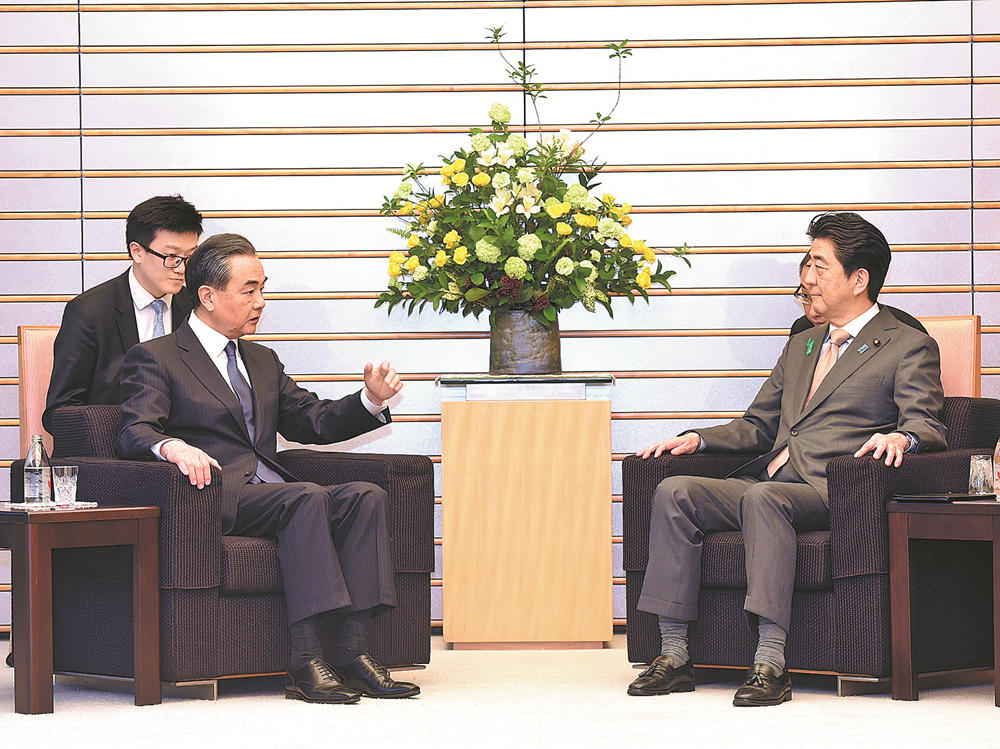Neighbors must make the most of new start: China Daily editorial
chinadaily.com.cn | Updated: 2018-04-16 20:30

A visit by a Chinese foreign minister to a neighboring country and an economic dialogue session between China and a next-door neighbor should not be a big deal. It would not be were that neighbor not Japan, and such visits and dialogues not been respectively postponed for nine and eight years.
That such a visit and conversation have finally taken place means a lot to both Beijing and Tokyo, as this year marks the 40th anniversary of the China-Japan Peace and Friendship Treaty.
That the two parties have chosen to repair ties and reopen high-level economic dialogue after such a long hiatus has naturally inspired high hopes in both countries that substantial improvements in broader ties will materialize.
Trade is a fitting starting point for any serious attempt at restoring the China-Japan relationship. It has long served as the "ballast and propeller" of bilateral political relations, as well as overall state-to-state relations. The high-level economic dialogue is the highest intergovernmental mechanism for economic cooperation, and it is supposed to facilitate corresponding policy communication and coordination.
In spite of their previous exchanges of tough rhetoric, Beijing and Tokyo know their economies are indispensable to each other. However, that they are most important trading partner to each other is only a relatively small, and increasingly smaller, part of their mutual significance. Recent changes in the global economic landscape, especially the rise of anti-globalization, protectionist tendencies, reveal increasing common interests between the two countries. Their shared reliance on overseas resources and markets determines a keenly felt shared interest in safeguarding free trade and economic globalization.
And despite the troubles brewed by history and their territorial dispute, the two governments appear to converge on the need to denuclearize the Korean Peninsula. Chinese Foreign Minister Wang Yi said he is eager to brief his host on the "very positive important changes" in the situation on the peninsula. Such an encouraging sign of bilateral communication is crucial for retaining the current momentum toward peaceful engagement with the Democratic People's Republic of Korea.
Wang's visit will be conducive to positive interaction at higher levels, especially his meeting with Japanese Prime Minister Shinzo Abe. But, despite this, the "substantial upgrade" in bilateral ties well-wishers anticipate may not come easily.
Wang was correct in reminding his Japanese counterpart of "complex and sensitive factors" that have to be overcome to improve the China-Japan relationship. The relationship has demonstrated special vulnerability and the two governments will have to work hard to manage their differences.
It is to be hoped the shared desire to improve relations is based on sound foresight rather than merely blind hopes.
























